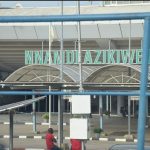 Cross border traders in Zimbabwe can now easily access foreign currency following the setting up of a $15 million facility in a deal involving the Cross Border Traders Association and Homelink, a subsidiary of the Reserve Bank of Zimbabwe.
Cross border traders in Zimbabwe can now easily access foreign currency following the setting up of a $15 million facility in a deal involving the Cross Border Traders Association and Homelink, a subsidiary of the Reserve Bank of Zimbabwe.
Traders were struggling to raise foreign currency owing to cash shortages and had been relying on the expensive and unreliable black market, which affected their businesses.
The $15 million loan facility was negotiated by Cross Border Traders Association president Dr Killer Zivhu to ease the plight of members of his association.
Speaking at a Press conference to announce the deal yesterday, Dr Zivhu said the fund would go a long way in improving the way members of the association did their business.
“Our members have been having challenges when they needed to buy foreign currency as they were turning to the black market,” he said.
“This facility will accept bond notes, in an arrangement in which the traders can bank their bond notes and in turn receive the forex when they want to buy from outside the country.
“There is now no need for cross border traders to be worried. They can access their foreign currency from Homelink.”
Dr Zivhu said the facility would also support the traders’ export business by availing funds for their export-oriented businesses.
He said they were looking forward to increasing exports to countries like Angola, Namibia, South Sudan and South Africa.
“So, we will not only support imports, but exports as well, because we have seasonal cross border traders who export different wares to different countries, especially in the region,” said Dr Zivhu.
“We will also help those who intent to sell their products in countries like those in Europe. We know there are traders who want to take products like artefacts and beef to those markets.”
Dr Zivhu said they had put in place stringent measures to ensure there will not be externalisation of the foreign currency.
He said another aspect of the deal would include the Cross Border Traders Association and Homelink bringing in goods for the small traders.
“We called this programme “Fill My Shop” in which one only needs a place like a shop where they will be operating from,” said Dr Zivhu. “We will bring in containers and give the items to the traders who give back our money after selling and they take their profits home.
“We are trying to make things much easier for our members who are mostly widows, single mothers and fathers and the unemployed youths.”
Dr Zivhu said the association would recommend the cross border traders’ applications to Homelink for them to access the loan facility.
The funds will be accessed through a local financial institutions which Dr Zivhu said would be unveiled at the official launch of the facility on Thursday.
Cross border traders can also bring their lower denominations in US dollars to Homelink in exchange with higher denominations, since some retailers in foreign countries do not accept lower denominations like $20.
Speaking at the same press conference, Homelink chief executive officer Mrs Stellamaris Chorwira said they approved the deal as part of the organisation’s quest for financial inclusion.
“The loans will be coming at concessionary rates because our aim is to support, especially the women traders,” she said. “It will be very affordable because we are trying to formalise the industry.
“We are targeting registered cross border traders and we will use their list and membership cards to process the loans. We are hoping that part of this initiative will help us go back to formal banking.”
Cross border traders’ main problem since the cash shortages started has been failure to access foreign currency and this deal will come as a relief to them.












